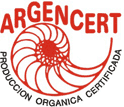We need sustainable livestock systems and a change in diets to meet the Paris Agreement
While the COVID-19 pandemic reveals its impacts not only on human health but also on the global food system, governments are discussing how our global economy should be revitalised. Thus, this is the right moment to ask our political leaders to use this opportunity to prompt a shift to more sustainable production and consumption patterns and to turn this dramatic situation into an occasion to courageously address the next global crisis ahead of us: climate change.
This pandemic has been fiercely showing how fragile and unequal the environmental and socio-economic pillars are on which our society rests. Trade restrictions, border closures and?labor shortages are seriously affecting regional agricultural value chains and posing risks to household food security.
The recent news, regarding the rapid spread of Covid-19 occurring in slaughterhousesin a number of countries around the worldare a clear example of how this new virus is bringing old issues to light. It almost seems like this pandemic wants us to rethink how our food is produced and distributed.
With such premises, the workshop onlivestock managementand?the socio-economic and food security dimensions of climate change,?which will be?organized next year in the framework of the Koronivia Joint Work on Agriculture, a workstream within the UNFCCC, is a great occasion to further discuss the COVID-19 consequences on our food system.
In order to strive for the inclusion of agroecology and organic farming as pathways for achieving the transformative change needed,IFOAM – Organics Internationalprepareda joint technical submission?on the topics of the workshop with contributions from?IFOAM Organics Europe,FiBLandBiovision.
Originally plan for October 2020, this Koronivia workshop on livestock management and food security, as all climate negotiations,has been postponed to next year due to the impossibility of all delegates to meet in person and?to ensure a proper multilateral process. For the first year since 1995, also the Conference of the party has been postponed and COP26 should be held in Glasgow in November 2021. Even though negotiations have been deferred, this does not mean that countries should not take action now and increase ambition in their climate pledges. The use of recovery funding packages, which are currently adopted in many countries to respond to the?unprecedent economic crisis caused by the pandemic, should be made conditional to the adoption of technologies and production systems that will really deliver on achieving net-zero?emissions by the mid of the century.
IFOAM - Organics International
Charles-de-Gaulle-Strasse 5
53113 Bonn
Germany
















